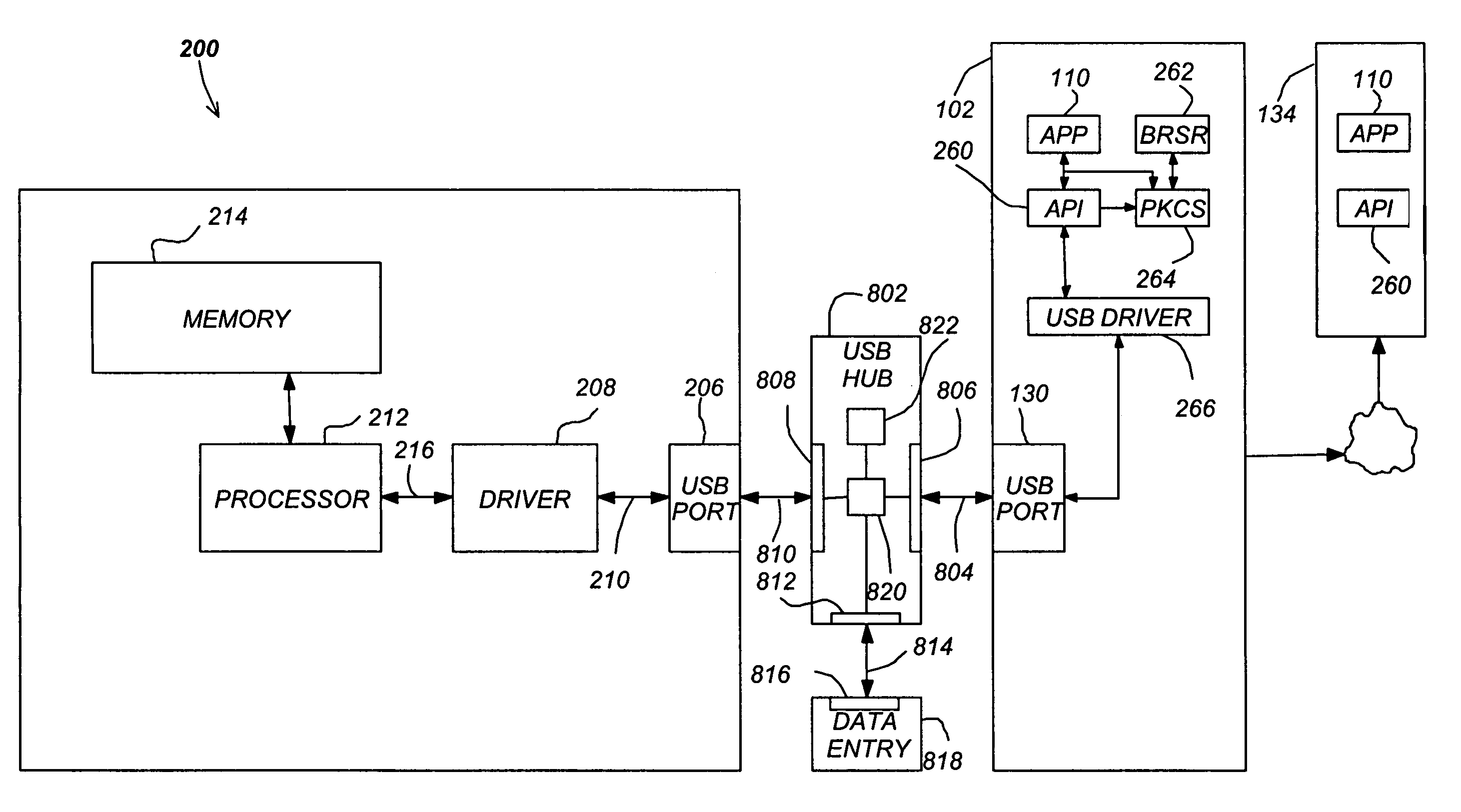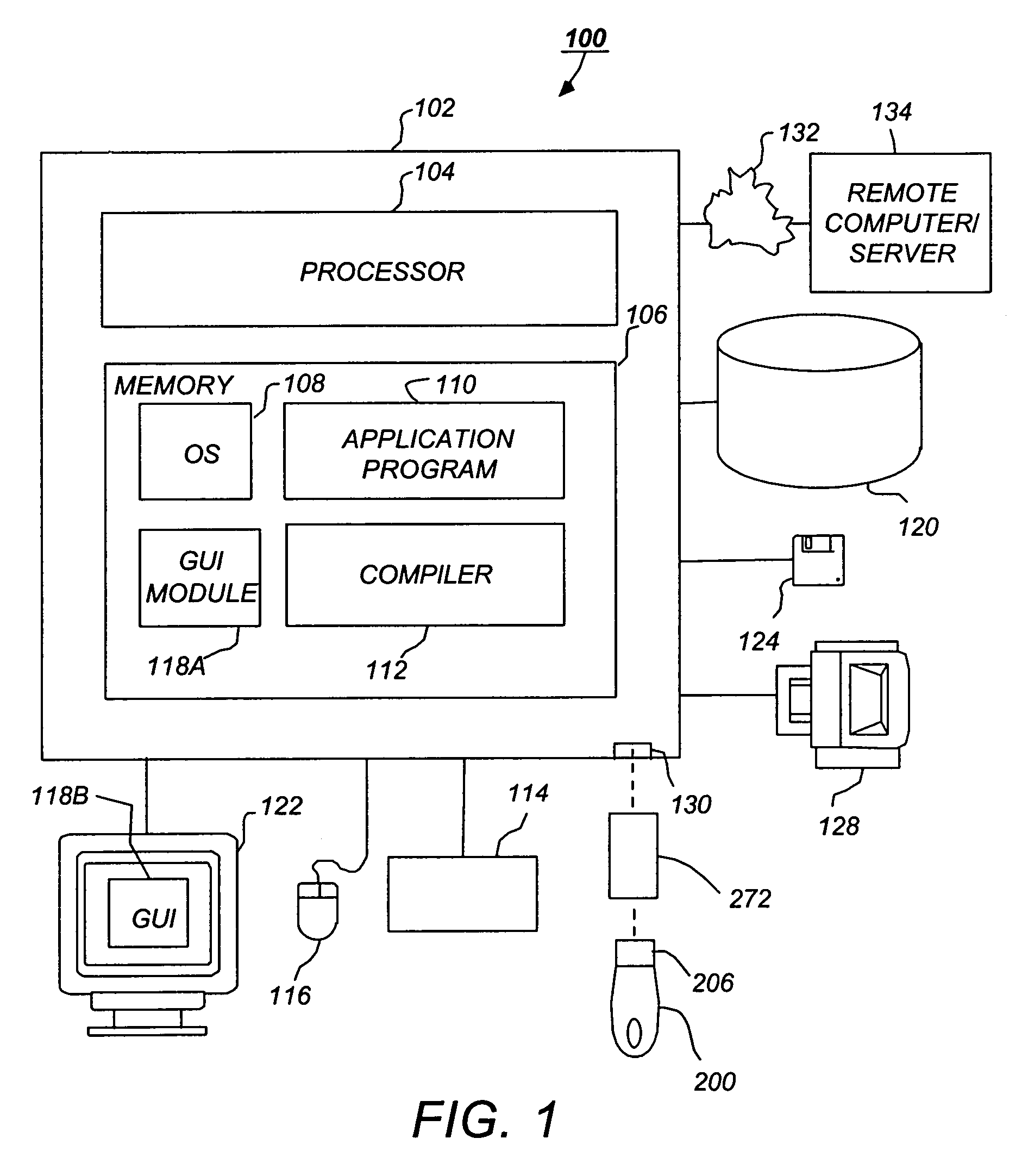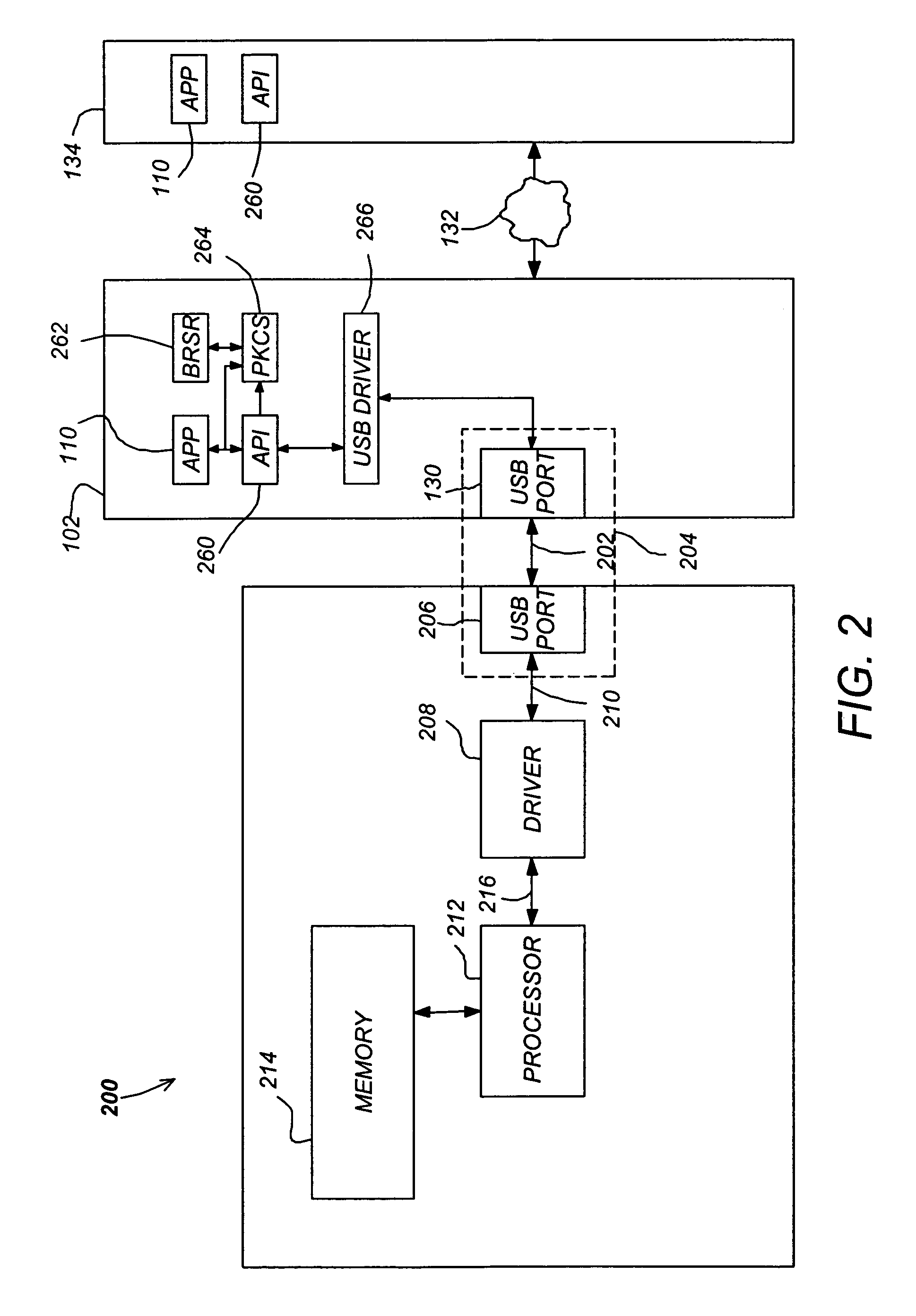USB hub keypad
a keypad and usb hub technology, applied in the field of personal keys, can solve the problems of limiting the effectiveness of this means of preventing software piracy, unauthorized use and copying of computer software, and costing software developers substantial revenue, so as to prevent copying and unauthorized use, and relieve the user from the task
- Summary
- Abstract
- Description
- Claims
- Application Information
AI Technical Summary
Benefits of technology
Problems solved by technology
Method used
Image
Examples
Embodiment Construction
[0050]In the following description, reference is made to the accompanying drawings which form a part hereof, and which is shown, by way of illustration, several embodiments of the present invention. It is understood that other embodiments may be utilized and structural changes may be made without departing from the scope of the present invention.
Hardware Environment
[0051]FIG. 1 illustrates an exemplary computer system 100 that could be used to implement the present invention. The computer 102 comprises a processor 104 and a memory, such as random access memory (RAM) 106. The computer 102 is operatively coupled to a display 122, which presents images such as windows to the user on a graphical user interface 118B. The computer 102 may be coupled to other devices, such as a keyboard 114, a mouse device 116, a printer 128, etc. Of course, those skilled in the art will recognize that any combination of the above components, or any number of different components, peripherals, and other de...
PUM
 Login to View More
Login to View More Abstract
Description
Claims
Application Information
 Login to View More
Login to View More - R&D
- Intellectual Property
- Life Sciences
- Materials
- Tech Scout
- Unparalleled Data Quality
- Higher Quality Content
- 60% Fewer Hallucinations
Browse by: Latest US Patents, China's latest patents, Technical Efficacy Thesaurus, Application Domain, Technology Topic, Popular Technical Reports.
© 2025 PatSnap. All rights reserved.Legal|Privacy policy|Modern Slavery Act Transparency Statement|Sitemap|About US| Contact US: help@patsnap.com



